Introduction
Staff Details
Activities
Research and Publication
Technical Guidelines
Unit/Laboratories
Contact Us
Introduction
Mandate of the Centre for One Health (CoH): CoH is working in coordination with all stakeholders to promote health and quality of life by undertaking activities necessary for prevention and control of Zoonotic Diseases with “One Health” approach. One Health approach takes into consideration that humans, animals, plants and broader ecosystems coexist in a delicate interdependent manner.
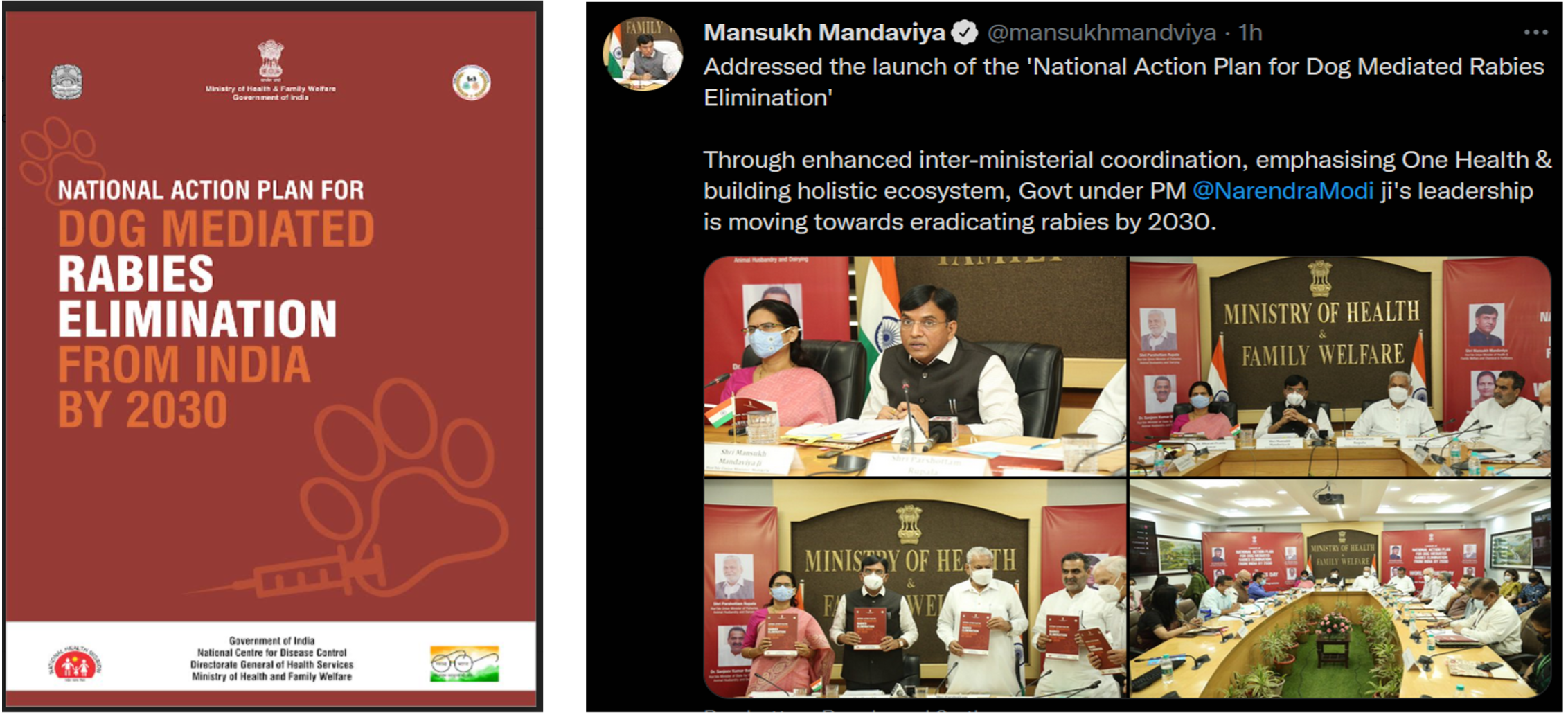
 5. Institutional mechanism for Rabies- Under the NRCP, to provide guidance for policy level, a National Technical Advisory Committee on Rabies (N-TAC) has been formed to provide continuous guidance to the program division for implementation.
5. Institutional mechanism for Rabies- Under the NRCP, to provide guidance for policy level, a National Technical Advisory Committee on Rabies (N-TAC) has been formed to provide continuous guidance to the program division for implementation.
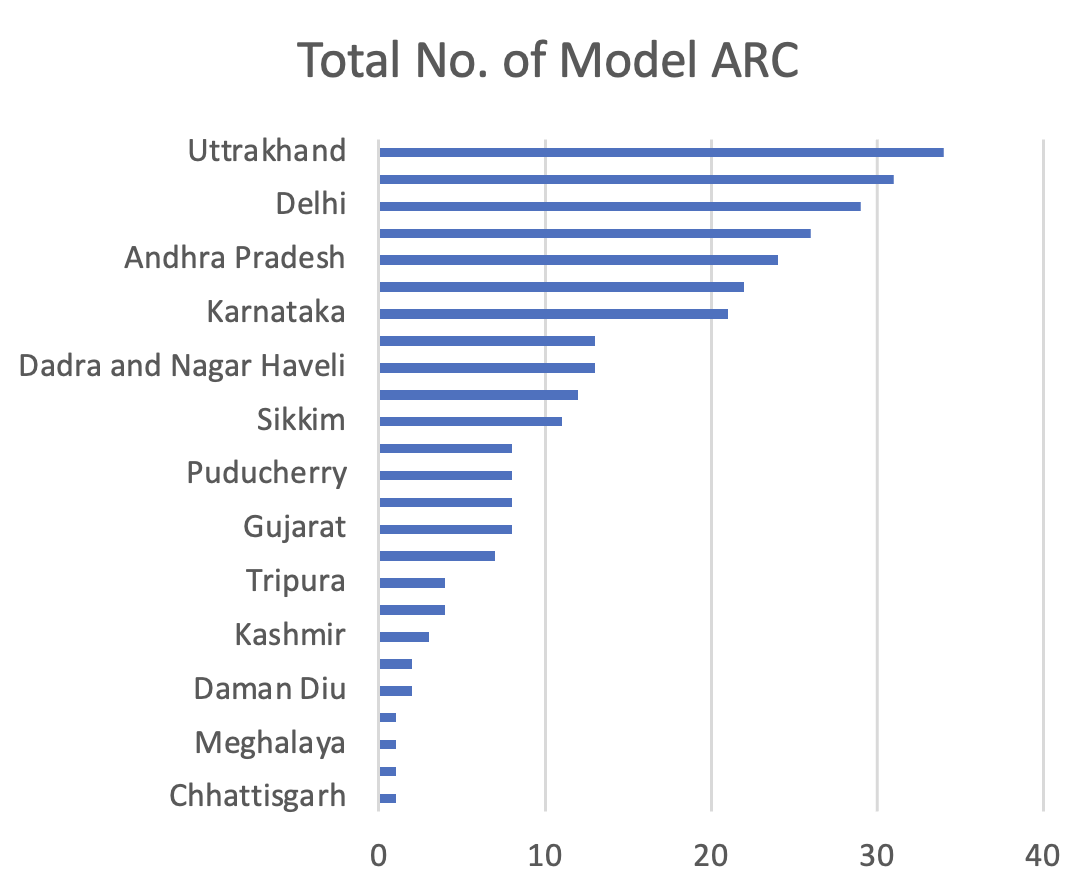 12. Implementation of Rabies Helpline number in the 4 States
12. Implementation of Rabies Helpline number in the 4 States
 Back
Back
Introduction
The Centre for One Health implements four National Health Programs, these are: –
- National Rabies Control Program (NRCP)
- National One Health Programme for Prevention and Control of Zoonoses (NOHP-PCZ)
- Program for Prevention and Control of Leptospirosis (PPCL)
- National Programme for Prevention and Control of Snakebite Envenoming (NPSE)
- Outbreak Investigations in collaboration
- Teaching for Epidemic Intelligent Service (EIS) and Regional Field Epidemiology Training Programme (FETP) in collaboration with other divisions of NCDC
- Trainings
- Research
1.National Rabies Control Program (NRCP)
Background: During the 11th Five Year Plan, the National Rabies Control Program (NRCP) was initiated by the National Centre for Disease Control (NCDC) in five cities: Delhi, Ahmedabad, Pune, Bangalore, and Madurai. This project commenced in January 2008 and continued until 2012. Building upon the insights garnered from this pilot phase, the NRCP was expanded nationwide during the 12th Five Year Plan. Additionally, from 2014 to 2017, a small-scale pilot was conducted to evaluate the animal health component strategies in Haryana and Chennai under the auspices of the Animal Welfare Board of India (AWBI), facilitated by the Ministry of Environment, Forest and Climate Change (MoEF&CC), Government of India. Presently, the NRCP focuses only on the human health component across all States and Union Territories. State-level initiatives are managed through the National Health Mission since the fiscal year 2019-20. Furthermore, the program has received approval under the Standing Finance Committee (SFC) for the fiscal years 2021-2026, under Scheme E of the NCDC’s umbrella program. Objective of the Programme: To prevent and control deaths due to Rabies in Humans and progressively achieving the Global target for “Rabies- Zero by 2030”. Components of the Programme:- Capacity Building of States and district level manpower for prevention and control of Rabies
- Promote of cost effective Intra-dermal Rabies vaccines for Rabies Post Exposure Prophylaxis.
- Strengthen Rabies diagnostics
- Strengthening Surveillance of animal bites and Rabies cases
- Information, Education & Communication
- Intersectional coordination
- Operational Research
- Capacity of States and district level manpower for prevention and control of rabies
- Strengthening Rabies Diagnostic Services
- Strengthening of Infectious Disease hospitals/ Rabies In- patient’s management facilities
- Operationalization of the National Action Plan for dog mediated Rabies Elimination (NAPRE)
- Advocacy of joint Rabies control activities for Operationalization of SAPRE
- Advocacy for utilization of National Free Drug Initiative under NHM for procurement of Anti-Rabies Vaccine (ARV)
- Improving of awareness regarding Rabies

- Regional Workshops for North-East, Southern and Delhi Region (14 States) has been conducted for developing a State Action Plan for Elimination of Dog Mediated Rabies by 2030 (SAPRE) in collaboration with State officials from both human and animal health sector along with representatives from municipal corporations, and local civic bodies.
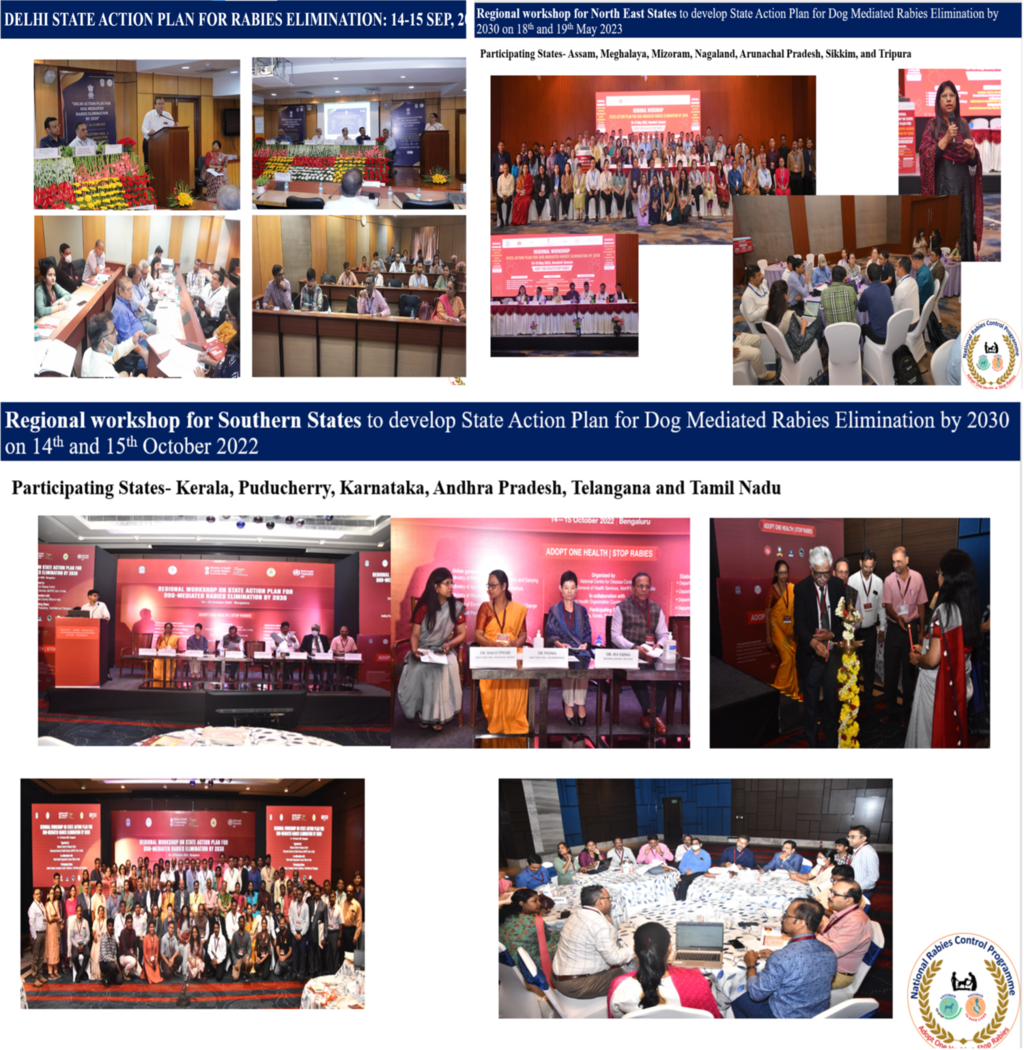
- To strengthen Human Rabies Surveillance efforts are ongoing to make Rabies a notifiable disease in Humans. For this, communications have been sent to all the states by the NRCP, MoHFW, GoI to make Human Rabies as a Notifiable Disease under the ‘Clinical Establishment Registration and Regulation Act 2010 or Nursing Home Act or respective State Public health Act’.
- To improve surveillance and reporting of animal bites, Suspected / Probable/ Confirmed Rabies Cases/ Deaths, Status of ARV and ARS, schedule of vaccination etc., a web-based portal is under development. The portal will have with linkages with different Divisions of MoHFW, Subordinate Offices, and Ministries / Departments / Organizations is required to have live updates of data available on portals / websites of respective data source agencies.
 5. Institutional mechanism for Rabies- Under the NRCP, to provide guidance for policy level, a National Technical Advisory Committee on Rabies (N-TAC) has been formed to provide continuous guidance to the program division for implementation.
5. Institutional mechanism for Rabies- Under the NRCP, to provide guidance for policy level, a National Technical Advisory Committee on Rabies (N-TAC) has been formed to provide continuous guidance to the program division for implementation.
- In addition to these, the NAPRE has recommended constituting of multidisciplinary Joint Steering Committee at the State and district level for monitoring of the State Action Plan for Dog Mediated Rabies Elimination from India.
- States have been advised to constitute a State Level Zoonotic Committees consisting of stakeholders from Health, Veterinary, wildlife dept. which will guide the implementation of Rabies control through the “One Health “approach.
- Rabies free cities initiative has been started in phase wise manner. In Tier 17 Cities of 6 States has been targeted and in Tier II 103 cities in 25 states has been targeted for Rabies and preparation of action plan under process.
- The NAPRE was launched jointly by the policymakers from MoFAHD and MoHFW.
- As part of advocacy undertaken under the NRCP program, the Department of Animal Husbandry had communicated to all the states to take Rabies as a priority issue and develop a plan for dog vaccination.
- DAHD had also being the administrative procedures to include dogs and cats in their mandate & work allocation of the ministry.
- The states have been advised for framing and monitoring the implementation of the state-level action plan on rabies elimination.
- Every year, on 28th September, World Rabies Day is being observed throughout the country in collaboration with animal health stakeholders at the National, state, and below levels.
- Division had also published and disseminated a booklet on Rabies and a Banner for behavioural change communication campaigns- Information Regarding IEC is available on NCDC website- https://ncdc.gov.in/index1.php?lang=1&level=2&sublinkid=502&lid=428
 12. Implementation of Rabies Helpline number in the 4 States
12. Implementation of Rabies Helpline number in the 4 States
 Back
Back
Staff Details
Staff Details
Head of the Division

Dr. Simmi Tiwari
MBBS, DNB ( SPM), PGDHHM, MBA ( HCA)
Joint Director & HoD
011-23930178
drsimmi[at]ncdc[dot]gov[dot]in
Other Officer in the Division

Dr. Ajit Dadaji Shewale
MBBS, MD (CM), DNB(SPM), DHRM
Joint Director
011-23989209
ajitshewale[at]ncdc[dot]gov[dot]in

Dr Jitesh Shamsundar Kuwatada
Assistant Director
MBBS, MD Community Medicine
jitesh[dot]kuwatada[at]ncdc[dot]gov[dot]in
Other Staff in the Division
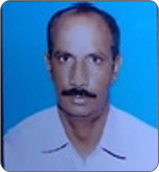
Mr. Praveen Kumar
Matriculation
Insect Collector
dzdp19[at]gmail[dot]com
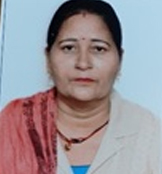
Mrs. Mamta
Animal Attendant
Ndzdp19[at]gmail[dot]com
Activities
Activities
- Report on World Rabies day 2025 & Symposium held on 29 September 2025 at NCDC

- Intersectoral coordination and SAPRE activities review under NRCP by state level zoonotic committee of Rajasthan on 12th August 2024.

Other Activities:
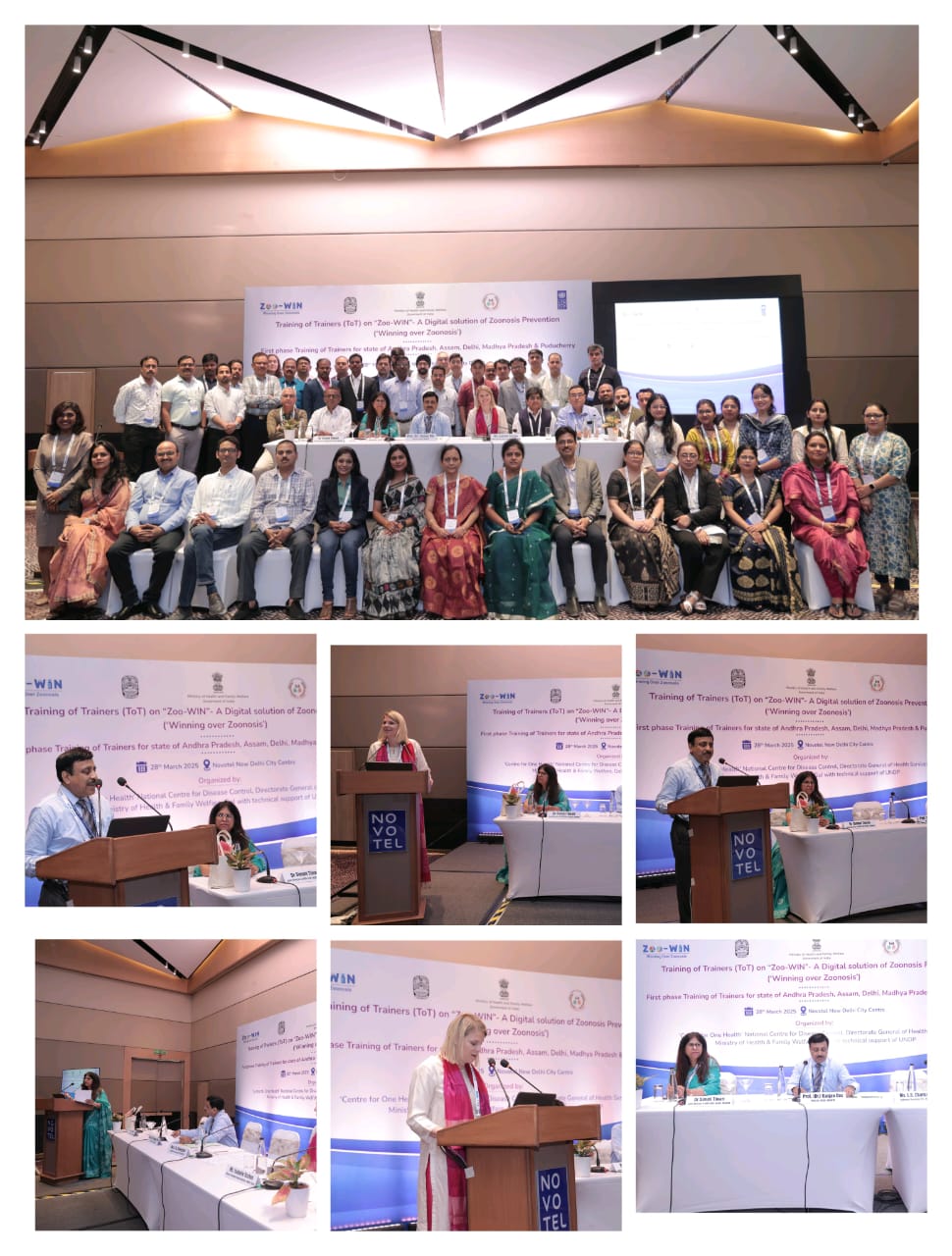
28th March 2025: Training of Trainers (ToT) on “Zoo-WIN” – a digital solution for Zoonoses Prevention has been organised by Centre for One Health, NCDC, MoHFW in collaboration with UNDP at Delhi for implementation in five pilot states (Andhra Pradesh, Puducherry, Delhi, Madhya Pradesh, and Assam).
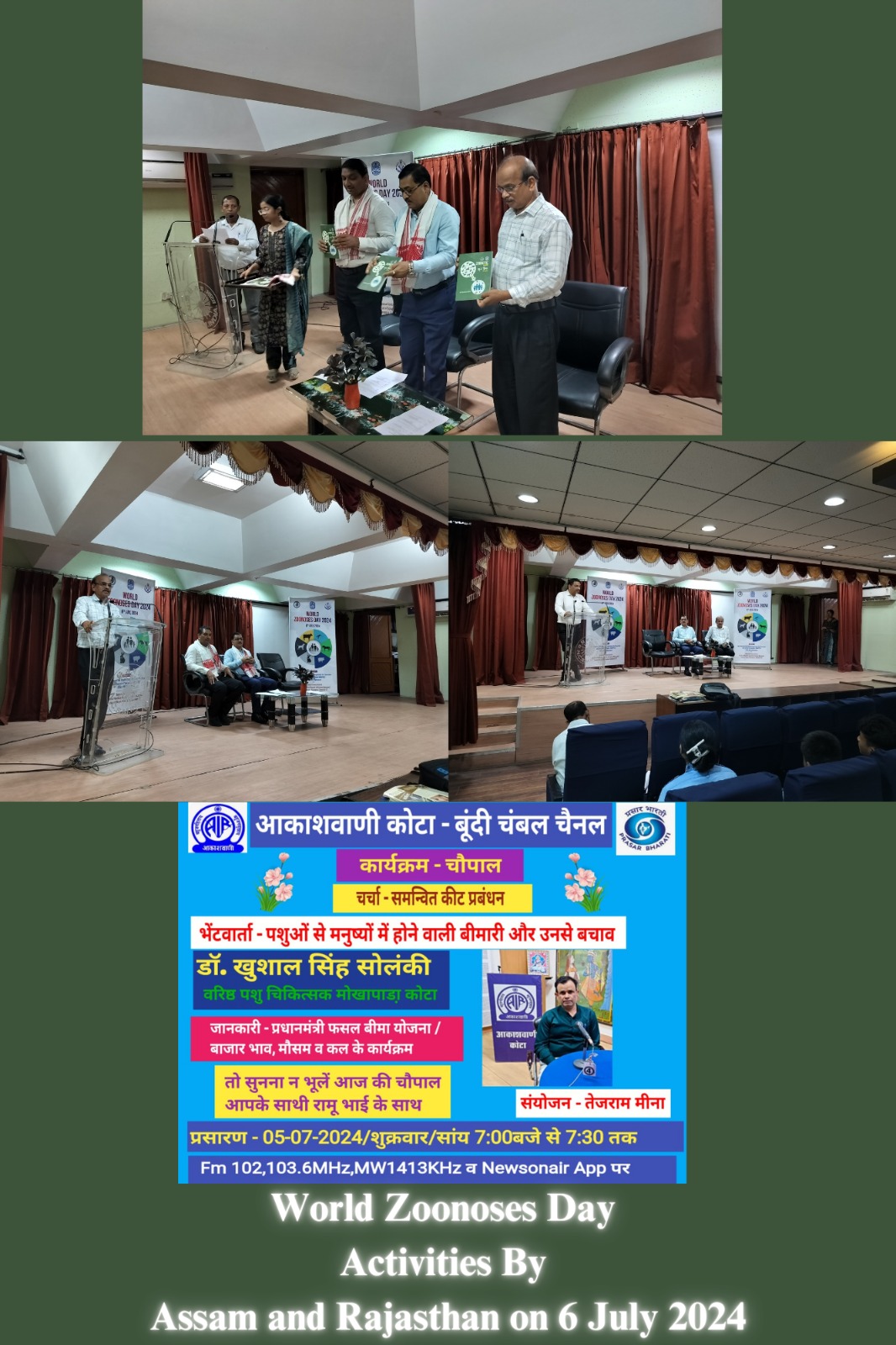
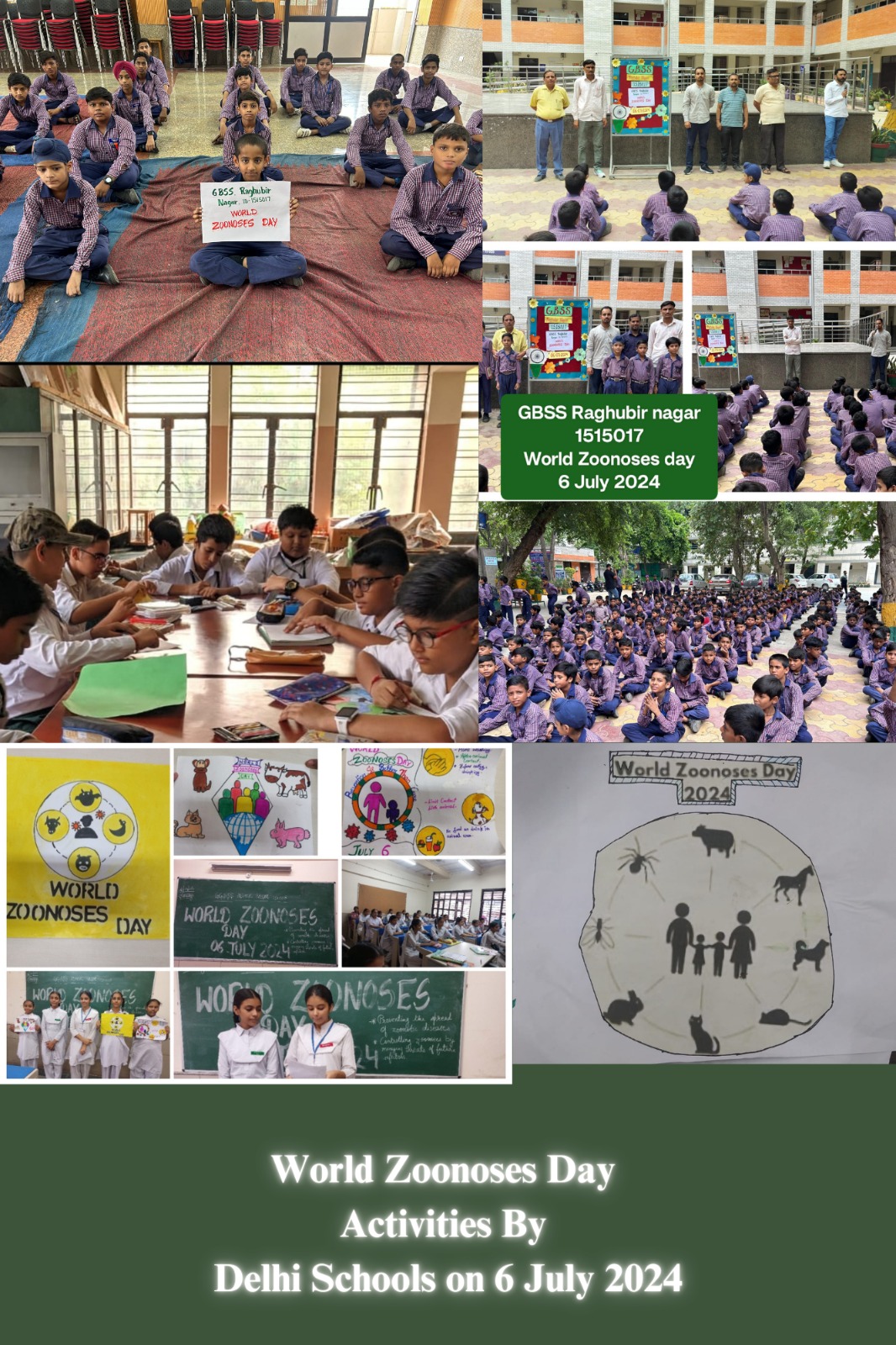
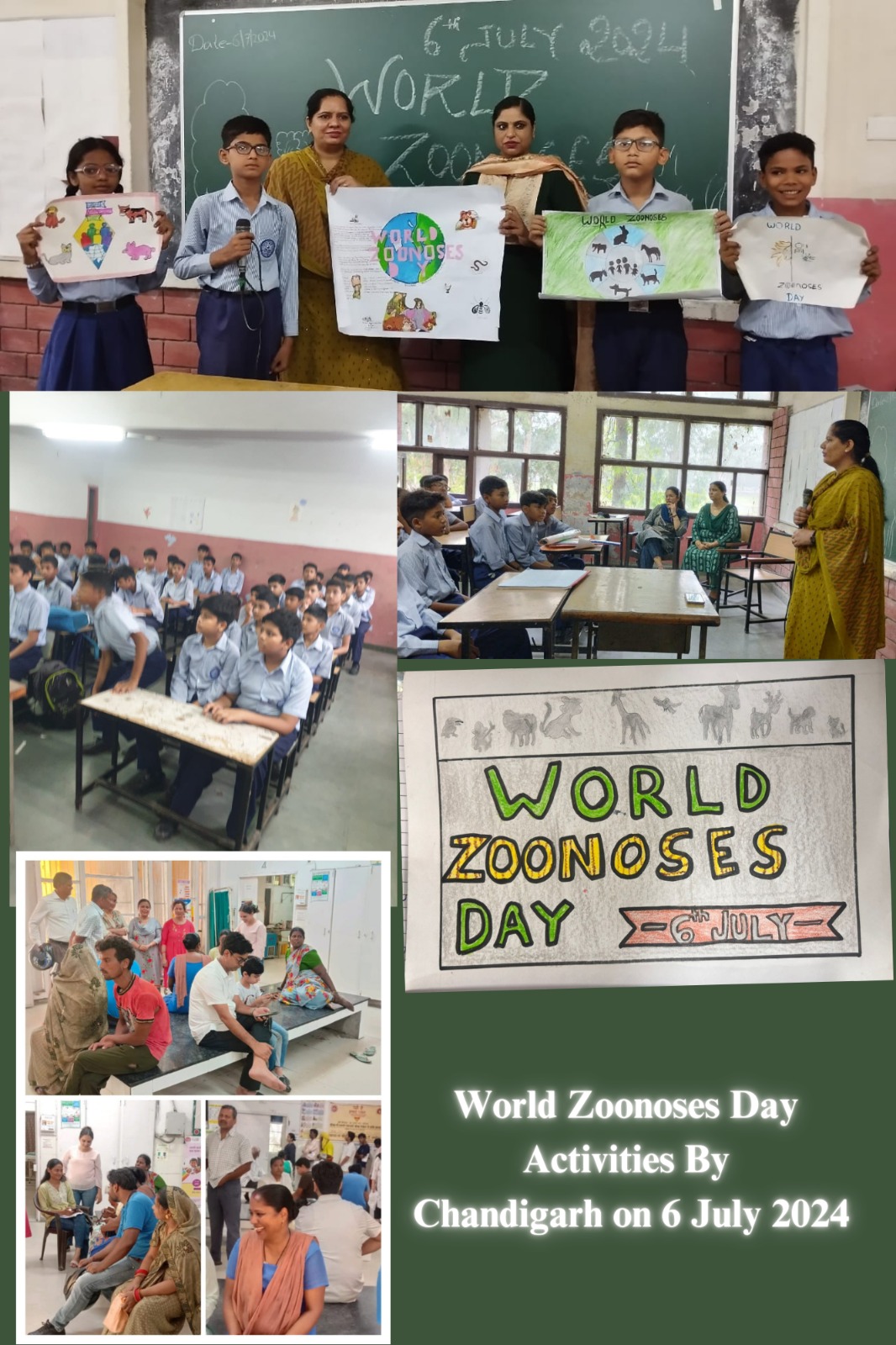
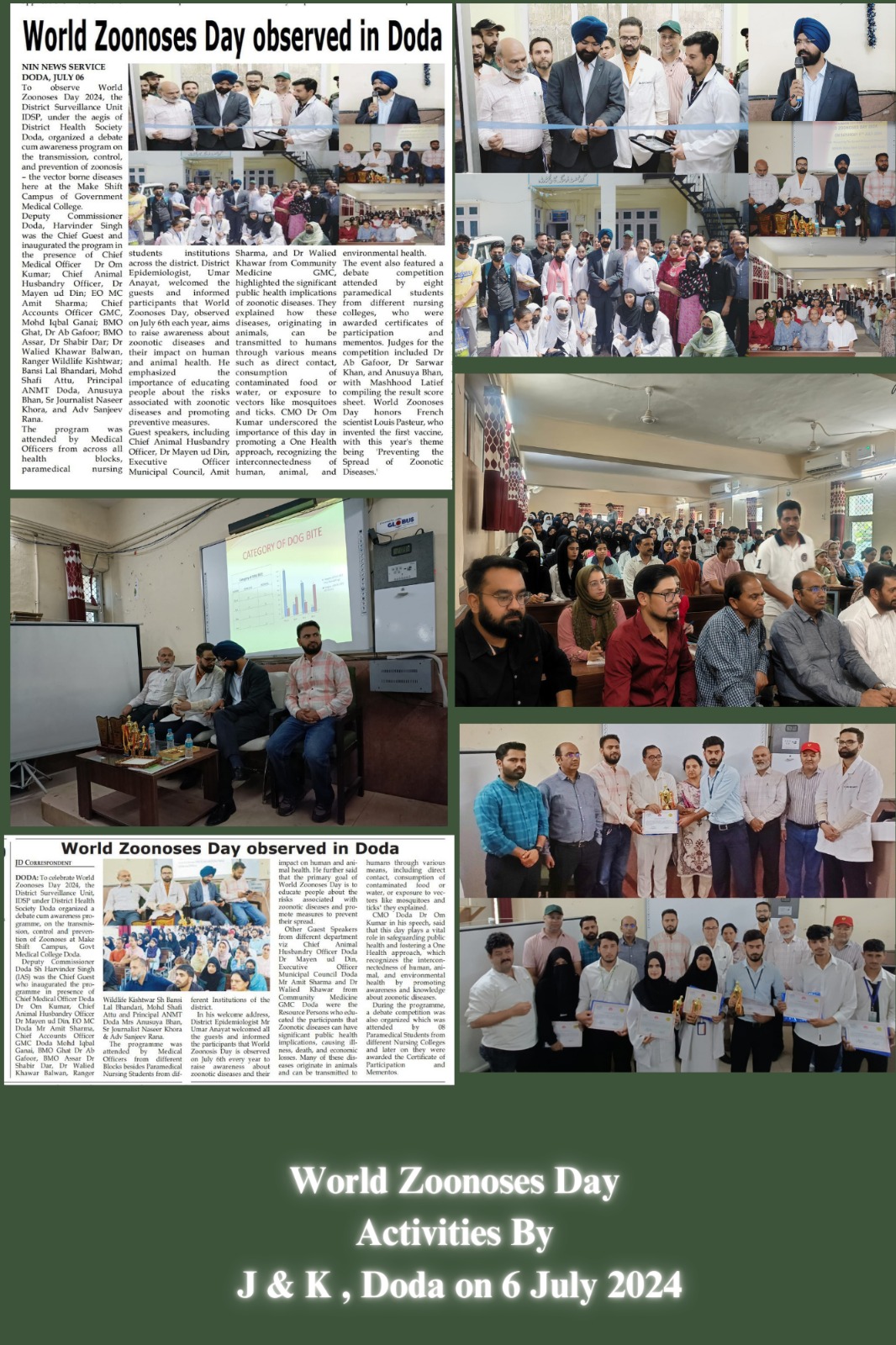
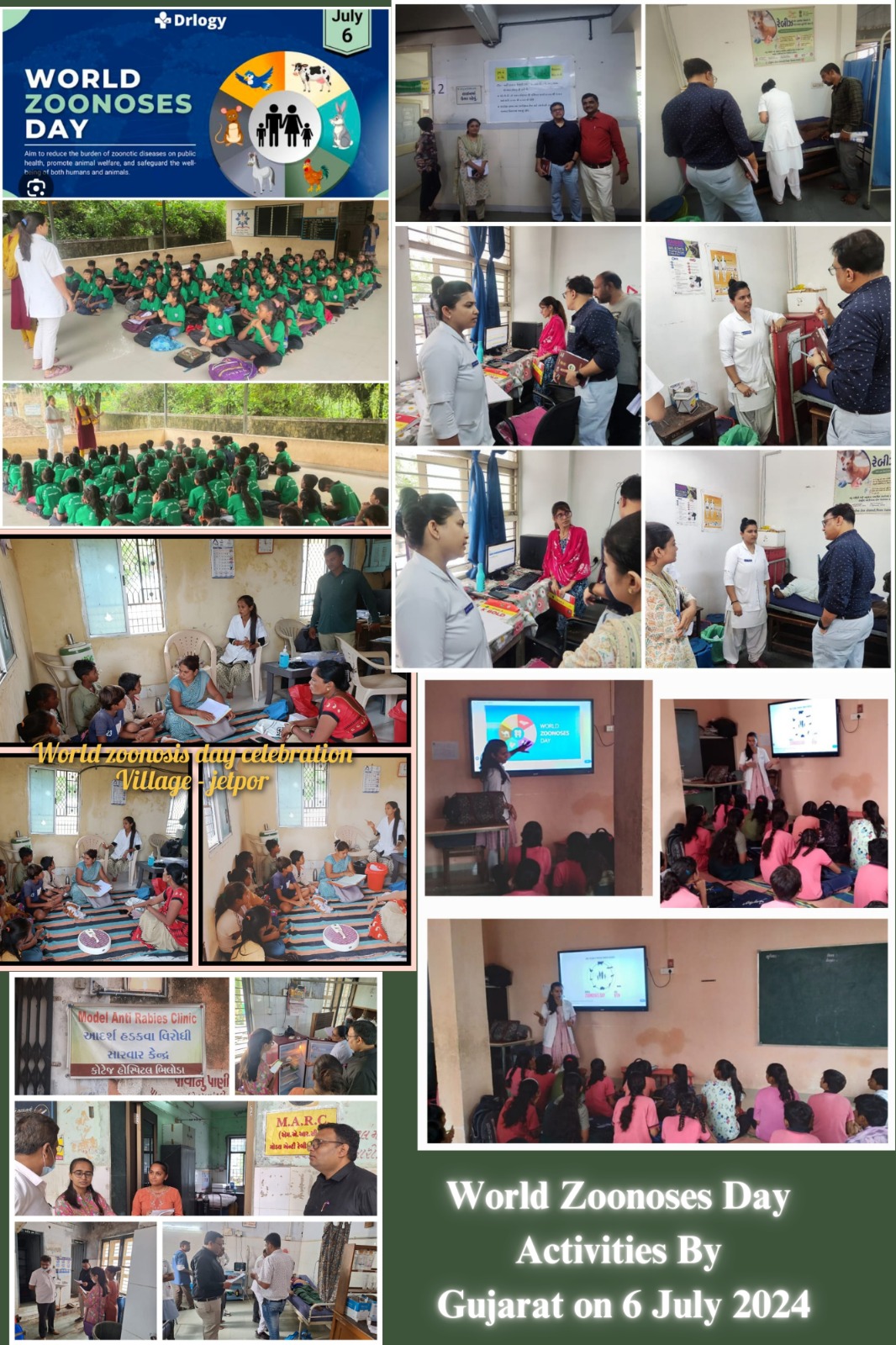
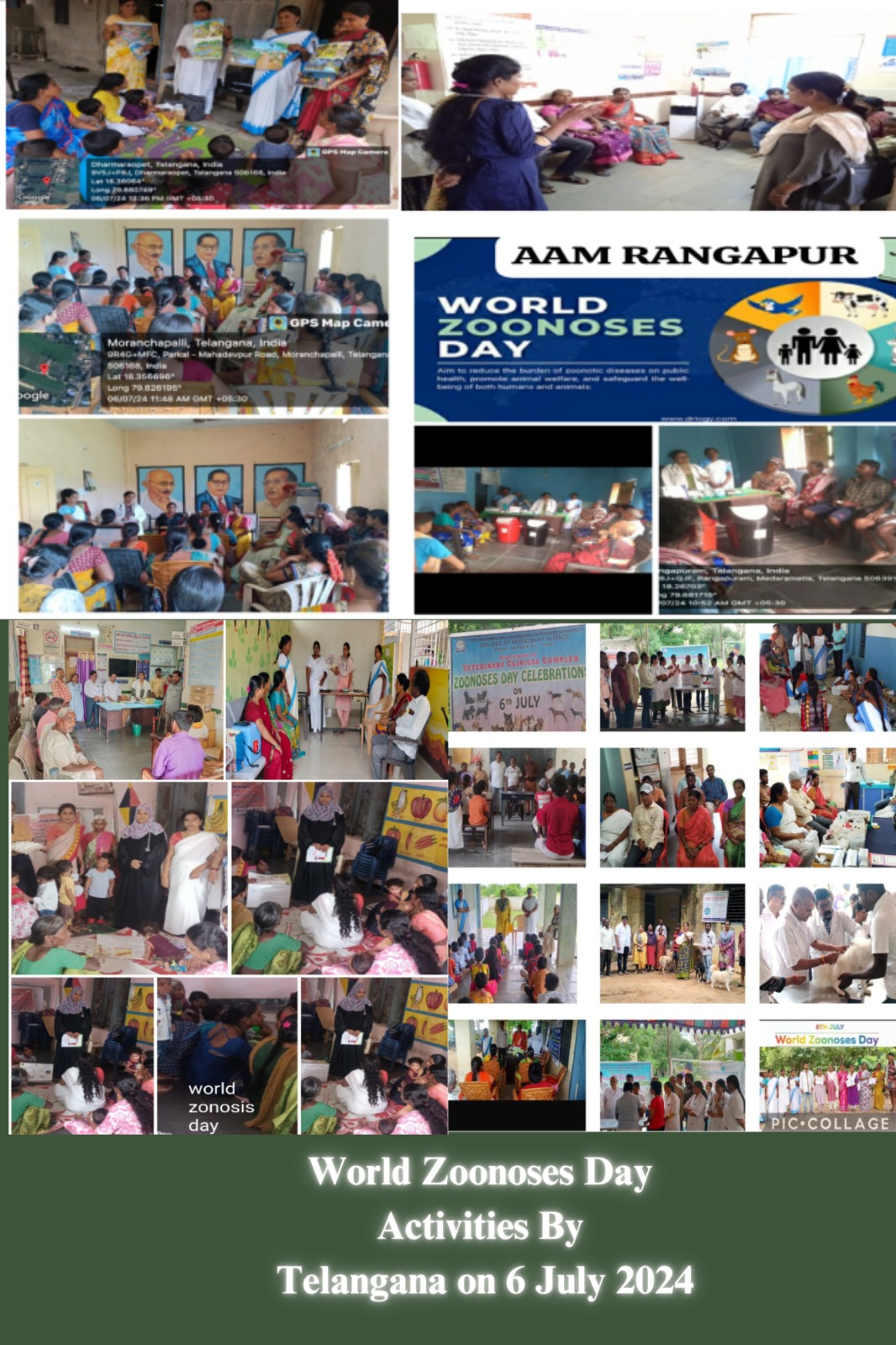
Glimpse of State initiatives on World Zoonoses Day – 6th July 2024



27 May & 28 May 2024 National Consultation on Legal Environment Assessment for One Health Activities in India
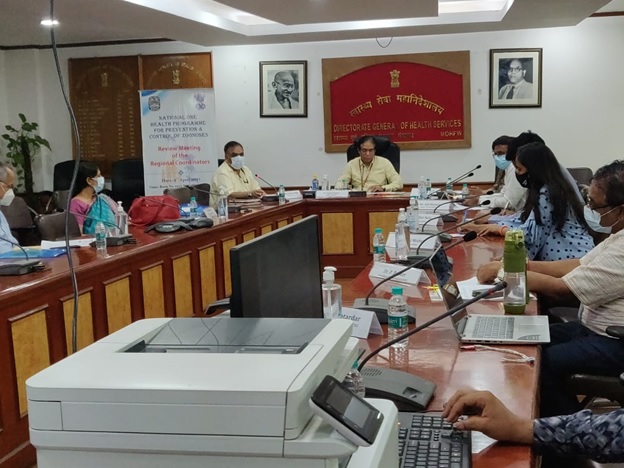 Review meeting of the Regional Coordinators under National One Health Programme for Prevention and Control of Zoonoses (NOHPP-CZ) under the Chairpersonship of Directorate General of Health Services (DGHS), on 6 April 2021 at Ministry of Health & Family Welfare, and Government of India New Delhi- 110001
Review meeting of the Regional Coordinators under National One Health Programme for Prevention and Control of Zoonoses (NOHPP-CZ) under the Chairpersonship of Directorate General of Health Services (DGHS), on 6 April 2021 at Ministry of Health & Family Welfare, and Government of India New Delhi- 110001
 10th meeting on standing committee of Zoonosis held on 09th December, 2021 under the chairmanship of DGHS, Dr. Manju Bala and Co-chaired by Animal Husbandry Commissioner (AHC), GOI at Nirman Bhawan, Ministry of Health & Family Welfare, Delhi, New Delhi-110001
10th meeting on standing committee of Zoonosis held on 09th December, 2021 under the chairmanship of DGHS, Dr. Manju Bala and Co-chaired by Animal Husbandry Commissioner (AHC), GOI at Nirman Bhawan, Ministry of Health & Family Welfare, Delhi, New Delhi-110001
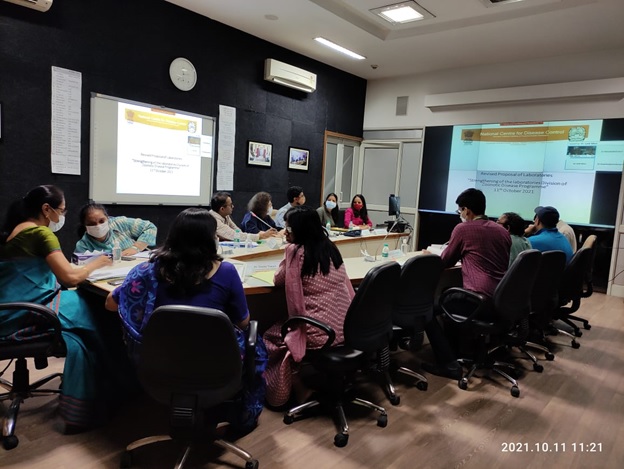 Meeting of Laboratory Expert Group Committee for strengthening of the laboratories under Division of Zoonotic Disease Programme, under the Chairpersonship of Dr. Manju Bala, National Centre for Disease Control, Government of India, New Delhi on 11th October 2021
Meeting of Laboratory Expert Group Committee for strengthening of the laboratories under Division of Zoonotic Disease Programme, under the Chairpersonship of Dr. Manju Bala, National Centre for Disease Control, Government of India, New Delhi on 11th October 2021
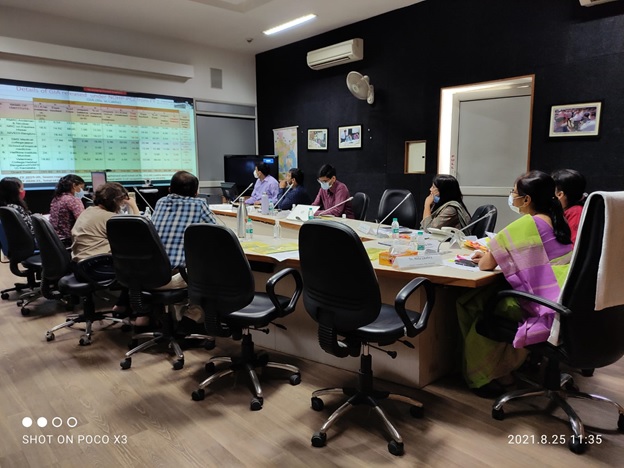 Meeting of Laboratory Expert Group Committee for strengthening of the laboratories under Division of Zoonotic Disease Programme, under the Chairpersonship of Dr. Manju Bala, National Centre for Disease Control, Government of India, New Delhi on 25th August 2021
Meeting of Laboratory Expert Group Committee for strengthening of the laboratories under Division of Zoonotic Disease Programme, under the Chairpersonship of Dr. Manju Bala, National Centre for Disease Control, Government of India, New Delhi on 25th August 2021
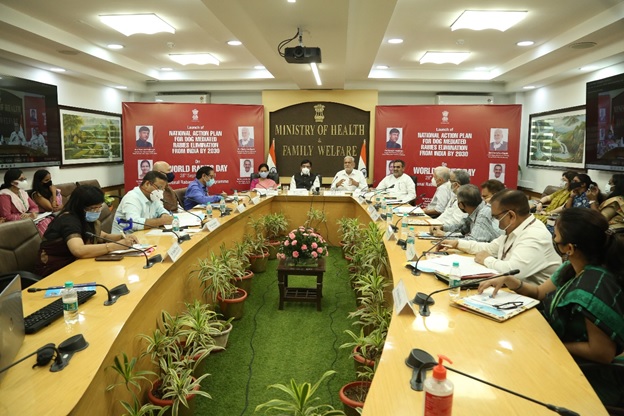 Joint Launch of “National Action Plan for Dog Mediated Rabies Elimination from India 2030” at Nirman Bhawan on 28th Sep 2021 by Hon’ble Union Minister HFM, Hon’ble Minister of State HFM & Hon’ble Union Minister MoF&AHD and Hon’ble Minister of State MoF&AHD
Joint Launch of “National Action Plan for Dog Mediated Rabies Elimination from India 2030” at Nirman Bhawan on 28th Sep 2021 by Hon’ble Union Minister HFM, Hon’ble Minister of State HFM & Hon’ble Union Minister MoF&AHD and Hon’ble Minister of State MoF&AHD
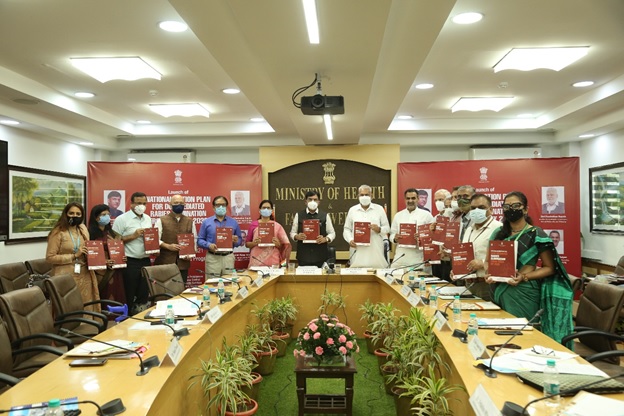 Joint Launch of “National Action Plan for Dog Mediated Rabies Elimination from India 2030” at Nirman Bhawan on 28th Sep 2021 by Hon’ble Union Minister HFM, Hon’ble Minister of State HFM & Hon’ble Union Minister MoF&AHD and Hon’ble Moinister of State MoF&AHD
Joint Launch of “National Action Plan for Dog Mediated Rabies Elimination from India 2030” at Nirman Bhawan on 28th Sep 2021 by Hon’ble Union Minister HFM, Hon’ble Minister of State HFM & Hon’ble Union Minister MoF&AHD and Hon’ble Moinister of State MoF&AHD
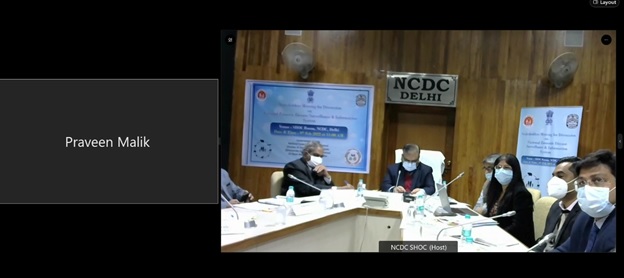 Stakeholders meeting for discussion on National Zoonotic Disease surveillance and information System under the Chairpersonship of Director & Co-Chairpersonship of Dr. Venkatesh on 9 Jan 2022 at National Center for Disease Control
Stakeholders meeting for discussion on National Zoonotic Disease surveillance and information System under the Chairpersonship of Director & Co-Chairpersonship of Dr. Venkatesh on 9 Jan 2022 at National Center for Disease Control
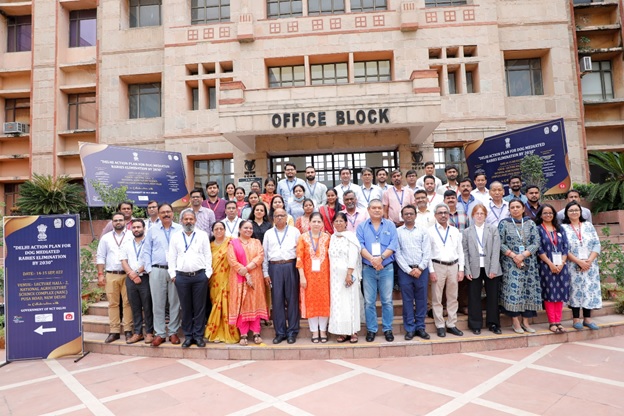 Delhi Action Plan for Dog Mediated Rabies Elimination By 2030 on 14th & 15th September 2022
Delhi Action Plan for Dog Mediated Rabies Elimination By 2030 on 14th & 15th September 2022
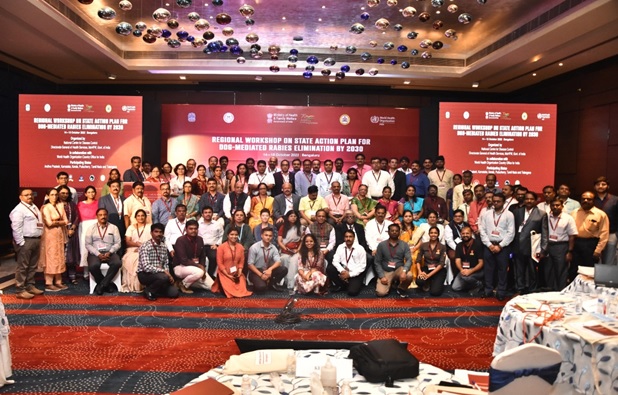 South Regional Workshop State Action Plan for Dog-Mediated Rabies Elimination by 2030 in Assam 14- 15 October 2022.
South Regional Workshop State Action Plan for Dog-Mediated Rabies Elimination by 2030 in Assam 14- 15 October 2022.
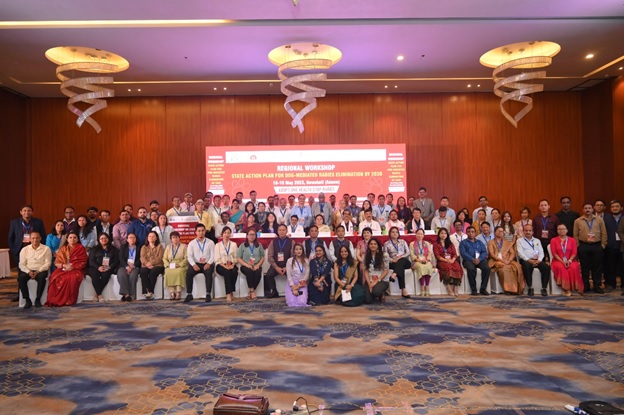 North-East Regional Workshop State Action Plan for Dog-Mediated Rabies Elimination by 2030 in Assam 18- 19 May 2023.
North-East Regional Workshop State Action Plan for Dog-Mediated Rabies Elimination by 2030 in Assam 18- 19 May 2023.
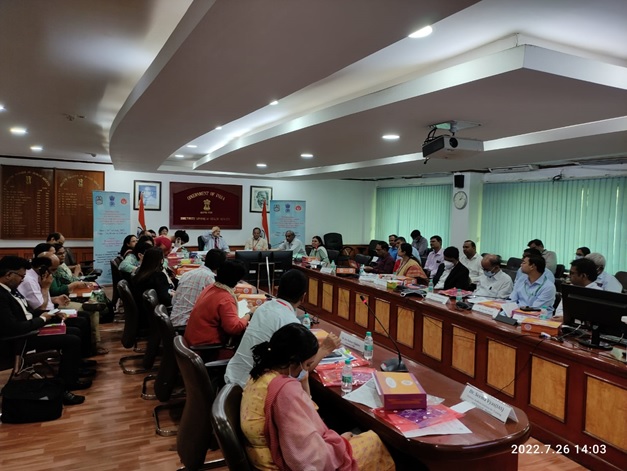 Meeting for “National Consultation on Developing Action Plan for Prevention and Control of Snake Bite Envenoming India” on 26th July 2022
Meeting for “National Consultation on Developing Action Plan for Prevention and Control of Snake Bite Envenoming India” on 26th July 2022
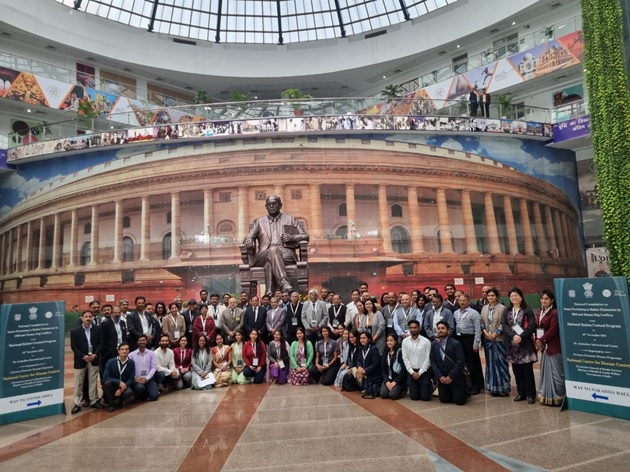 National Consultation on Issues Pertaining to Rabies Elimination by 2030 and Human Dog Conflicts under National Rabies Control Program, National Centre for Disease on 30th November 2022
National Consultation on Issues Pertaining to Rabies Elimination by 2030 and Human Dog Conflicts under National Rabies Control Program, National Centre for Disease on 30th November 2022
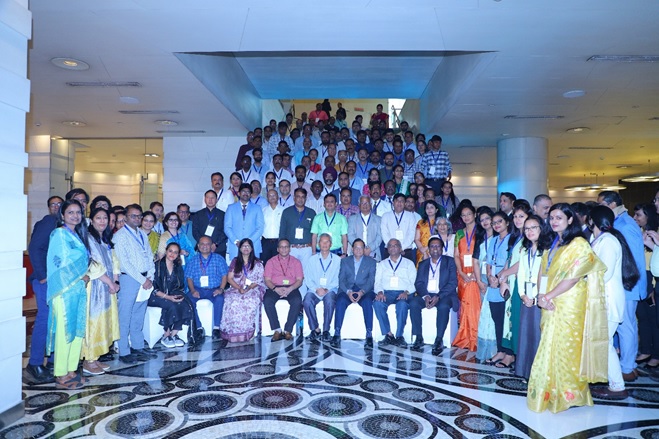 National Conclave “Uniting for One Health” World Zoonoses Day 2023 on 6th & 7th July 2023
National Conclave “Uniting for One Health” World Zoonoses Day 2023 on 6th & 7th July 2023Research and Publication
Technical Guidelines
Technical Guidelines
- Guidelines on Leveraging Community Based Platform for Prevention and Control of Zoonotic Disease


- SOP for Joint Investigation for Suspected Human Rabies


- Communications Rabies Toolkit for Rabies Pre-Exposure Prophylaxis Vaccination in High-risk Groups


- Guidelines for MSU Staff on Prevention and Control of Zoonotic Disease


- Guidance for Preventing Shortage of ARV & ARS


- Letter from MoHFW for Rabies Notification to the states


- Standard Treatment Guidelines for Clinical Management of Snake Bite


- National Action Plan for Prevention and Control of Snake Bite Envenoming(NAPSE)


- Zoonotic Diseases of Public Health Importance

- Operational Guidelines for Sentinel Surveillance Sites on Zoonoses

- Training Module For Medical Officers

- National Action Plan for Dog Mediated Rabies Elimination From India

- National Guidelines for Rabies Prophylaxis 2019

- Technical Guidance on Zoonotic Disease

- Operational Guidelines Rabies Free City Initiative

- National Guidelines : Diagnosis, Case Management, Prevention & Control of Leptospirosis.

- Guideline for Model Anti-Rabies Clinic and Reporting Format

Unit/Laboratories
Contact Us
Contact Us
Full Mailing Address:
Centre For One Health
www.ncdc.gov.in
011-23930178
dzdp19[at]gmail[dot]com









